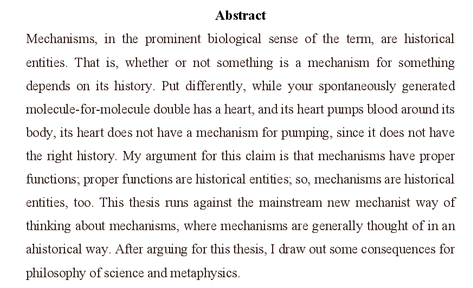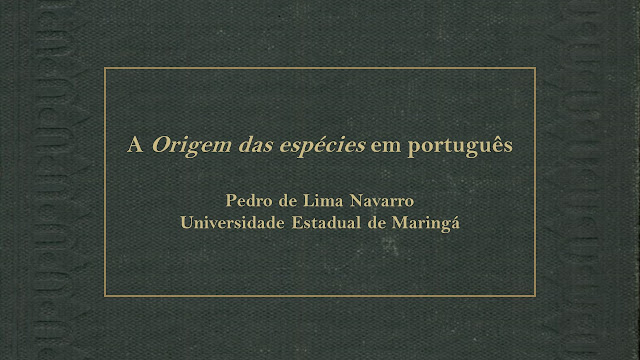Resumos 2
Ignorance or culture war? Christian nationalism and scientific illiteracy
Religiously conservative Americans consistently demonstrate lower scientific literacy than other Americans. Some argue, however, that Americans’ scientific literacy is contingent on subcultural conflict, showing differences in scientific literacy that emerge only on religiously contested scientific claims. Building on these insights, we find that the most salient factor explaining Americans’ divergence on contested (though not on uncontested) scientific claims is not religious commitment or conservatism per se, but an ideology that seeks political—and consequently epistemic—dominance: Christian nationalism. National data show that Christian nationalism is unassociated with Americans’ answers on questions about uncontested scientific knowledge. However, Christian nationalism is the strongest predictor of incorrect answers on questions about religiously contested scientific claims. Contemporary “culture war” debates over science have little to do with outright ignorance of science, nor are they strictly about religiosity or theological conservatism. Rather, disputes over science and religion reflect politically motivated denials of scientific facts that threaten Christian nationalism’s claims to epistemic and cultural authority.
Keywords acceptance of evolution, Christian nationalism, evangelicals, politics, public views of science, science and religion, scientific literacy
A comparative study of the acceptance and understanding of evolution between China and the US
First Published April 15, 2021 https://doi.org/10.1177/09636625211006870
Prior work has found that Americans’ views on evolution are significantly and positively related to their understanding of this theory. However, whether this relationship is cross-culturally robust is unknown. This article extends earlier work by measuring and comparing the acceptance and understanding of evolution among highly educated individuals in China and the United States. We find a significantly higher evolution acceptance level in the Chinese sample than in the US sample, but no significant difference in their average levels of evolution knowledge. Our analysis also shows that accepting evolutionary theory is related to understanding in both the US and the Chinese samples. These results provide evidence for the robustness of the relationship between understanding and acceptance of evolution across different cultural contexts. To our knowledge, this is the first attempt to comprehensively test understanding of evolutionary theory within a Chinese sample and to compare these results with the US sample.
Keywords acceptance of evolution, cross-cultural comparison, evolution knowledge, public understanding of science, understanding of evolution
For or against genetically modified foods: Different discursive strategies in Chinese social media
First Published April 15, 2021 Research Article Find in PubMed
This study investigates the discourse of a long-lasting social debate over the safety of genetically modified food in China. Based on data from the social media platform WeChat, it adopts the perspective of critical discourse analysis to analyze what strategies are used in discourses of Chinese genetically modified foods to construct identities of the two opposing sides in genetically modified debates. The two sides use different rhetorical devices, argumentative strategies, and intertextual historical elements. Specifically, opponents of genetically modified food are inclined to use metaphors, moralization, intertextual proverbs, and revolutionary inflection to legitimize their position, while supporters often use irony, authorization, and historical allusions to legitimate as well as enhance their hegemony. I suggest that exploring how each side strategically constructs a discourse may facilitate better understanding and mitigate conflict between the two polarized viewpoints represented in social media.
Is Human Culture Cumulative?
Abstract
It has been claimed that a unique feature of human culture is that it accumulates beneficial modifications over time. On the basis of a couple of methodological considerations, we here argue that, perhaps surprisingly, there is insufficient evidence for a proper test of this claim. And we indicate what further research would be needed to firmly establish the cumulativeness of human culture.
Of Plots and Men: The Heuristics of Conspiracy Theories
In a time when conspiracy theories seem to be flourishing, generally receiving dismissive reactions, this article conversely tries to take them seriously and to consider what they may tell us about contemporary societies. Whereas philosophical discussions turn around the specific definition and delimitation of these theories, anthropologists acknowledge their existence and inscribe them in a broader interpretive complex that includes witchcraft, gossip, rumors, and urban legends. In order to account for their current success, it is necessary to study their felicity conditions on both the emitting and receiving sides by combining cognitive and contextual approaches. The case of the conspiracy theories developed around AIDS in South Africa shows how history can inform their comprehension and reveal the sometimes fine line between paranoid fantasies and actual plots. A final reflection cautions about the increasing tendency, in the social sciences, to assimilate social critique and conspiratorial thinking, using the latter to delegitimize the former.
An exploratory full-text analysis of Science Careers in a changing academic job market
Scientometrics 126, 4055–4071 (2021)
Abstract
Science is one of the top interdisciplinary peer-reviewed journals with a very wide audience, and since 1996 it has dedicated a section of its website, Science Careers, to career news and advice. As Science Careers has been active, the academic job market has been transforming, most notably by a decrease in the availability of tenure-track academic positions. Using a dataset of 6111 full-text Science Careers articles we perform an exploratory text analysis to characterize the changes in framing, topics, and scope of career content. We analyzed tag frequency and word frequency to examine topics over time. We tracked the relative prominence of articles that explicitly present advice to the reader, as opposed to more descriptive articles about workforce dynamics or personal experiences of career scientists. We find that although the number of articles tagged Advice had remained consistently high from the inception of the Science Careers section, 2015 marked the beginning of a significant decrease in the number of explicitly tagged Advice articles. The apparent disinclination for strongly prescriptive advice may indicate a growing sense, even within an academic-oriented venue, that career-pathways for researchers have become less predictable, making dispensing broadly applicable advice more challenging
The editor-manuscript game
Scientometrics 126, 4277–4295 (2021)
Abstract
Scientific journals receive an increasing number of submissions and many of them will be desk rejected without receiving detailed feedback from reviewers. In fact, the number of desk rejections has risen dramatically in the last decade. In this paper, we contribute to the literature by examining an editor’s incentives either to issue a desk decision that is based solely on their imperfect private information about the manuscript’s quality or to send the paper to external peer reviewers that better reveal its quality. In our model, without external review, the journal editor receives an informative but imperfect signal of the manuscript’s quality. We focus on the case in which editors may differ in their decision accuracy, and highlight the consideration that even an editor with the best expertise and the best intentions may be unable to reach a perfect assessment of the manuscript’s quality. In our baseline model, the journal editor is not driven by financial interests but is nevertheless impurely altruistic in that the editor has a reputation consideration that may be tied to authors’ observational learning of the editor’s decision pathway (i.e., the process to reach the eventual editorial decision, which may or may not involve external peer review). Also, the editor in our setting is imperfectly informed about the manuscript’s quality unless they send the manuscript out to review. Our paper shows that high-ability editors tend to send fewer papers to external review than they should as a way to signal their ability. This is so because external peer review and editor’s decision expertise may substitute for each other.
A reconsideration of inapplicable characters, and an approximation with step-matrix recoding
Abstract
Evidence for phylogenetic analysis comes in the form of observed similarities, and trees are selected to minimize the number of similarities that cannot be accounted for by homology (homoplasies). Thus, the classical argument for parsimony directly links homoplasy with explanatory power. When characters are hierarchically related, a first character may represent a primary structure such as tail absence/presence and a secondary (subordinate) character may describe tail colour; this makes tail colour inapplicable when tail is absent. It has been proposed that such character hierarchies should be evaluated on the same logical basis as standard characters, maximizing the number of similarities accounted for by secondary homology, i.e. common ancestry. Previous evaluations of the homology of a given ancestral reconstruction contain the unintuitive quantity “subcharacters” (number of regions of applicability). Rather than counting subcharacters, this paper proposes an equivalent but more intuitive formulation, based on counting the number of changes into each separate state. In this formulation, x-transformations, the homoplasy for the reconstruction is simply the number of changes into the state beyond the first, summed over all states. There is thus no direct connection between homoplasy and number of steps, only between homoplasy and extra steps. The link between the two formulations is that, for any region of applicability of any character, a subcharacter can be interpreted as the change into the state that is plesiomorphic in that region. Although some authors have claimed that the equivalence between maximizing explanatory power and minimizing independent originations of similar features (i.e. the standard justification of parsimony) does not hold for inapplicable characters, evaluating homoplasy with x-transformations clearly connects the two sides of that equation. Furthermore, as the evaluation with x-transformations provides a direct count and a straightforward interpretation of homoplasy, it extends naturally into implied weighting, and sheds light on problems with additive, step-matrix or continuous characters. It also allows deriving transformation costs for recoding hierarchies as step-matrix characters (where recoded states correspond to permissible combinations of states in primary and secondary characters), so that homology of the original observations is properly measured. Those transformation costs set the cost of gaining the primary structure to the maximum difference between “present” states plus cost of loss, and difference between “present” states to the sum of user-defined transformation costs between secondary features. With such recoding, invoking multiple independent derivations of the structure and similar features will cost as many extra “steps” as the instances of similarities (in both original characters) that are not being homologized. The step-matrix recoding also can take into account nested dependences. We present a simple convention for naming characters, which TNT can use to automatically convert the original data into a step-matrix form and set the proper transformation costs. Finally, the basic elements for handling inapplicable characters in the context of maximum-likelihood inference are outlined, and some quantitative comparisons between different approaches to inapplicables are provided.












Comentários
Postar um comentário